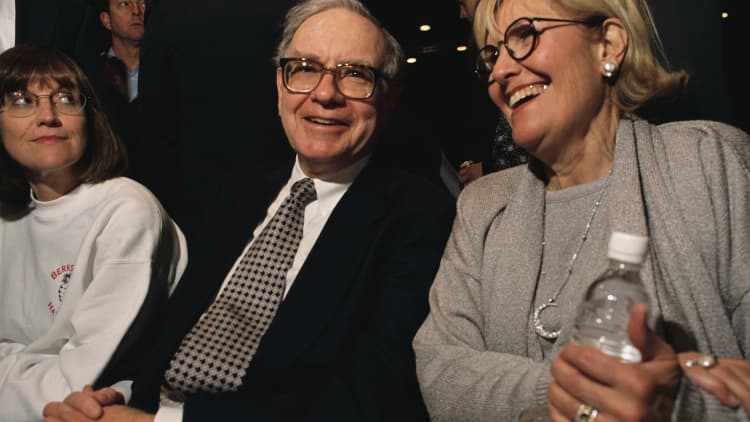Great leaders think differently. But take a cursory glance at the majority of consumer products around you, and you'll see an interesting trend you might not have noticed before: in nearly every industry, from automobiles to computers to clothing, companies tend to produce products that are extremely similar to those of their competitors.
Sure, sometimes it's because there's plenty of space in the market. But other times, it's just a blatant attempt to cash in on a trend and boost short-term earnings. And it's not just products, either — it's branding, politicizing, team structuring. Companies copy each other in all kinds of ways.
Warren Buffett addressed this occurrence in his 1989 letter to Berkshire Hathaway shareholders, in which he reflected on the hard lessons he learned about investing and managing in the preceding 25 years.
'The institutional imperative'
The "most surprising discovery," he wrote, is "the overwhelming importance in business of an unseen force that we might call 'the institutional imperative.' In business school, I was given no hint of the imperative's existence, and I did not intuitively understand it when I entered the business world."
The billionaire continued: "I then thought that decent, intelligent and experienced managers would automatically make rational business decisions. But I learned over time that isn't so. Instead, rationality frequently wilts when the institutional imperative comes into play."
Buffett explained that the institutional imperative can manifest when, for example, "any business craving of the leader, however foolish, will be quickly supported by detailed rate-of-return and strategic studies prepared by his troops."
It can also occur when "executives mindlessly imitate the behavior of their peer companies — whether they are expanding, acquiring, setting executive compensation or whatever — no matter how foolish it may be to do so."
Why it can be problematic
This force can drive leaders, even the ones with top credentials, to adopt misguided approaches purely because everyone else is doing it.
Why does this happen? Buffett noted that much of it has to do with managers having poor capital management skills, along with the tendency to seize upon any evidence or data — no matter how inaccurate — that supports their resistance to change.
...rationality frequently wilts when the institutional imperative comes into play.Warren Buffettchairman and CEO, Berkshire Hathaway
The lesson, put another way, is that if you spend time closely observing your rivals (some of whom might have an exaggerated sense of their own abilities) and adopting their practices, you might all go down making the same mistakes.
This is a common occurrence in many organizations, and it isn't always visible to investors. Even Buffett himself would agree that avoiding the institutional imperative is incredibly hard to do.
"After making some expensive mistakes because I ignored the power of the imperative, I have tried to organize and manage Berkshire in ways that minimize its influence," he wrote in the letter. "Furthermore, Charlie [Munger] and I have attempted to concentrate our investments in companies that appear alert to this problem."
That means paying close attention to the leaders of companies: What's their management style? Do they have wisdom and rationality? Are they able to think focus on the long-term? Most important of all, are they aware [of the institutional imperative] enough to take action and create an environment that will mitigate the tendency?
Learning about the institutional imperative has also taught Buffett to "go into business only with people whom I like, trust and admire."
While this policy doesn't always ensure success, it's sensible to believe that you can accomplish wonders if you primarily associate yourself with people who possess decent economic characteristics and a willingness to accept change when change is needed.
As William Penn is believed to have once said, "Right is right, even if everyone is against it, and wrong is wrong, even if everyone is for it."
Tom Popomaronis is a commerce expert, cross-industry innovation leader and Vice President of Innovation at Massive Alliance. His work has been featured in Forbes, Fast Company and The Washington Post. In 2014, he was named one of the "40 Under 40" by the Baltimore Business Journal.
Don't miss:
- Warren Buffett: This is the No. 1 mistake parents make when teaching kids about money
- These are Bill Gates' 13 favorite TED talks—and they'll make you feel smarter, wiser and more hopeful
- There are 4 main paths to becoming a millionaire—and this is the easiest one, says money expert
Like this story? Subscribe to CNBC Make It on YouTube!



